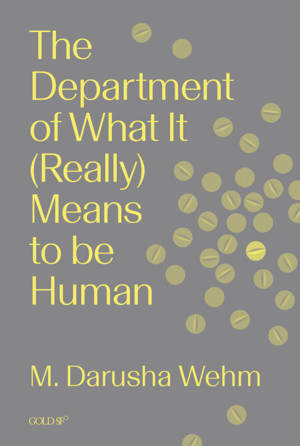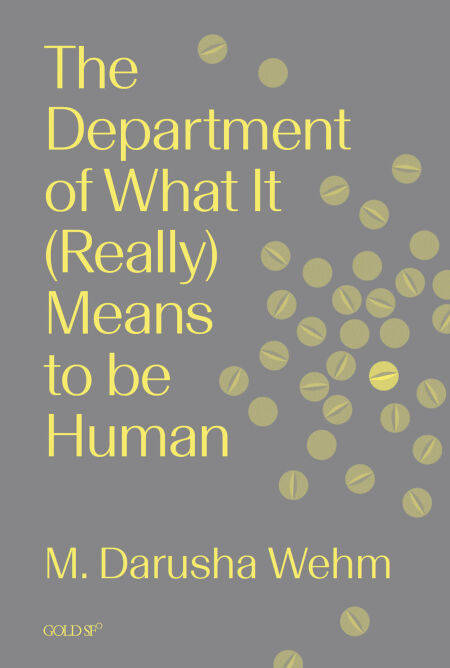
Bedankt voor het vertrouwen het afgelopen jaar! Om jou te bedanken bieden we GRATIS verzending (in België) aan op alles gedurende de hele maand januari.
- Afhalen na 1 uur in een winkel met voorraad
- In januari gratis thuislevering in België
- Ruim aanbod met 7 miljoen producten
Bedankt voor het vertrouwen het afgelopen jaar! Om jou te bedanken bieden we GRATIS verzending (in België) aan op alles gedurende de hele maand januari.
- Afhalen na 1 uur in een winkel met voorraad
- In januari gratis thuislevering in België
- Ruim aanbod met 7 miljoen producten
Zoeken
The Department of What It (Really) Means to Be Human E-BOOK
M. Darusha Wehm
€ 12,76
+ 12 punten
Uitvoering
Omschrijving
A near-future real-life society transitions to a post-capitalist, post-climate change reality.
The Department Of What It (Really) Means To Be Human is a thoughtful, optimistic sci-fi novel set in a near-future Aotearoa New Zealand where an investigator navigates a newly post-capitalist world in their search for a missing artist. When the world changed, Emerald Hutson closed the door on their old life. Now they’re a freelance investigator for the Grants and Stipends Office, augmenting basic income with cases that are both simple and easily resolved. Until they’re assigned to track down Gen Ecks, a notable installation artist who’s fallen off the map. When Em finds Gen, she’s under the influence of Moneta, a drug designed to let users experience memories as if they were real. Em’s inclined to declare their case closed and leave Gen to it. Most drug use has been decriminalized, and while Gen’s art might be suffering, there’s no reason to intervene if Gen wants to use Moneta. But the drug isn’t working as expected. Gen’s not just going down memory lane, she’s completely lost, unable to tell past from present. And she may not be the only one. To help Gen and expose Moneta’s dangers, Em cracks open old doors, beginning with an old colleague who’s been keeping an unsettlingly close eye on them. And in the process Em learns that while they may have been happy to take advantage of the world’s shift to start anew, neither they nor the world can be truly changed until they face the past head on.
The Department Of What It (Really) Means To Be Human is a thoughtful, optimistic sci-fi novel set in a near-future Aotearoa New Zealand where an investigator navigates a newly post-capitalist world in their search for a missing artist. When the world changed, Emerald Hutson closed the door on their old life. Now they’re a freelance investigator for the Grants and Stipends Office, augmenting basic income with cases that are both simple and easily resolved. Until they’re assigned to track down Gen Ecks, a notable installation artist who’s fallen off the map. When Em finds Gen, she’s under the influence of Moneta, a drug designed to let users experience memories as if they were real. Em’s inclined to declare their case closed and leave Gen to it. Most drug use has been decriminalized, and while Gen’s art might be suffering, there’s no reason to intervene if Gen wants to use Moneta. But the drug isn’t working as expected. Gen’s not just going down memory lane, she’s completely lost, unable to tell past from present. And she may not be the only one. To help Gen and expose Moneta’s dangers, Em cracks open old doors, beginning with an old colleague who’s been keeping an unsettlingly close eye on them. And in the process Em learns that while they may have been happy to take advantage of the world’s shift to start anew, neither they nor the world can be truly changed until they face the past head on.
Specificaties
Betrokkenen
- Auteur(s):
- Uitgeverij:
Inhoud
- Aantal bladzijden:
- 224
- Taal:
- Engels
- Reeks:
Eigenschappen
- Productcode (EAN):
- 9781915983473
- Verschijningsdatum:
- 13/07/2026
- Uitvoering:
- E-book
- Beveiligd met:
- Adobe DRM
- Formaat:
- ePub

Alleen bij Standaard Boekhandel
+ 12 punten op je klantenkaart van Standaard Boekhandel
Beoordelingen
We publiceren alleen reviews die voldoen aan de voorwaarden voor reviews. Bekijk onze voorwaarden voor reviews.









